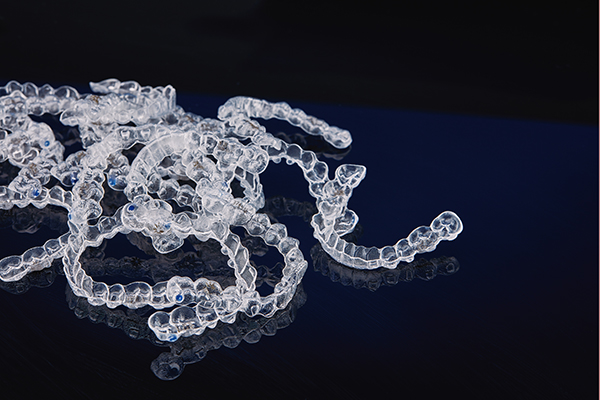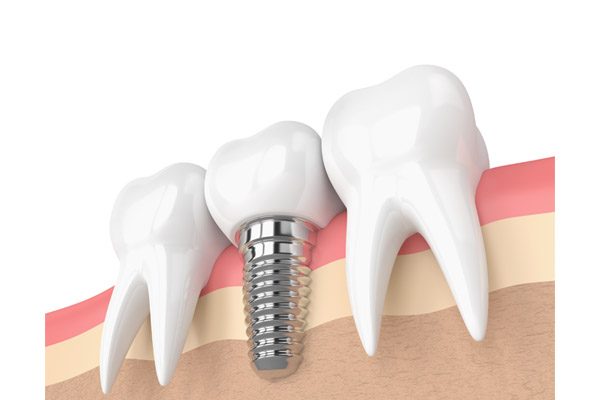 There are different types of appliances to choose from when it comes to orthodontics. These appliances typically work by pushing on the wearer’s teeth, gradually improving their alignment over time. Malocclusions, or bite problems, that can be treated with oral appliances include: Crooked teeth, spaces between teeth, overbites, underbites, and crossbites.
There are different types of appliances to choose from when it comes to orthodontics. These appliances typically work by pushing on the wearer’s teeth, gradually improving their alignment over time. Malocclusions, or bite problems, that can be treated with oral appliances include: Crooked teeth, spaces between teeth, overbites, underbites, and crossbites.
Addressing poor teeth alignment provides a variety of benefits, like improved oral health, speech, and appearance. Treatment times with orthodontics are typically somewhere around 12 to 36 months, based on how severe the patient’s malocclusion is.
Dental appliances commonly used for orthodontics
Here are a few of the devices that can be used to fix misaligned teeth.
1. Braces
Metal braces have been effective at straightening teeth for over a century. They are made up of metal brackets and wires. Each bracket is attached to a tooth, and a wire connects the brackets on each half of the jaw. Tightening these wires exerts a pushing force on the wearer’s teeth.
Braces are typically recommended for people dealing with malocclusions caused by jaw abnormalities. Other options, like clear aligners, are less effective at this. Noteworthy things that patients should know about braces include:
- Braces are fixed in place once attached to teeth
- Braces can make eating, speaking, and oral hygiene more challenging
- Braces can increase the risk of tooth decay
- Braces are more noticeable
- Braces might be required if a person has a severe orthodontic issue
2. Ceramic braces
These are just like metal braces, but the metal parts have been switched out for tooth-colored and transparent ones. Ceramic braces can be just as effective as traditional metal braces, and they provide improved aesthetics. They are an ideal option for people who need braces but do not want to have to deal with their less aesthetically pleasing visuals.
3. Lingual braces
These have similar components to metal braces, but instead of attaching the brackets to the front of the patient’s teeth, the dentist attaches them at the back of the teeth. This hides the appliance, so it does not affect the way that the patient’s teeth look. Lingual braces tend to be the most uncomfortable type of braces, and they are rarely used nowadays because there are more comfortable discreet options, like clear aligners.
4. Clear aligners
Clear aligners are plastic trays that go over teeth. They apply force on the wearer’s teeth, improving their alignment over the course of treatment. Clear aligners are removable, unlike the other appliances, so they do not interfere with oral hygiene or meals. Clear aligners are viewed as the most convenient way to straighten teeth, and the adjustment period is usually shorter. However, they require more of a commitment from the patient and are less ideal for teenagers and children.
Straighten your smile
Call or visit our Troy clinic to set up an appointment if you are interested in fixing your malocclusion with orthodontic appliances like braces or clear aligners.
Request an appointment or call Thanasas Family Dental Care at 248-260-2878 for an appointment in our Troy office.
Recent Posts
In recent years, clear aligners have become more popular due to their benefits. Many people choose aligners because they are comfortable and removable. Others also appreciate that aligners offer a discreet way to straighten teeth. The appliances can effectively move your teeth into a more aesthetically pleasing position. Read on to find out more about…
There are many advantages of using clear aligners, but some patients might mistakenly believe these are hard to care for. Not caring for them correctly might result in embarrassment about the mouth. It could happen when the bacteria buildup or the aligners become discolored. The good news is there is no need for shame during…
It takes dedication to wear clear aligners often enough, but patients need to know what to do afterward. However, without the right after-treatment care, the teeth might begin to shift. That undoes the work of the clear aligners. That means the patient will need to have a retainer after the aligners come off.A retainer can…


